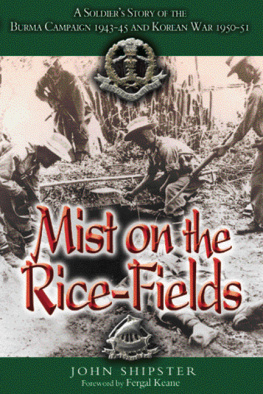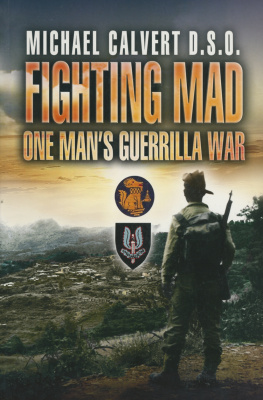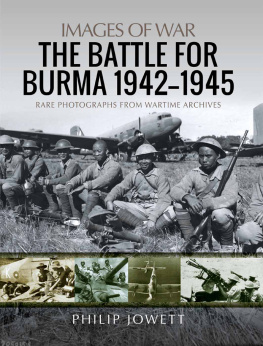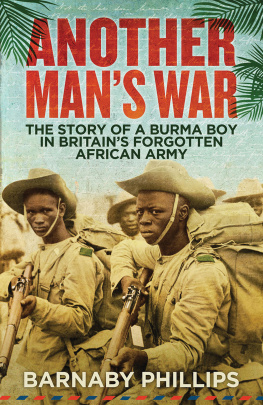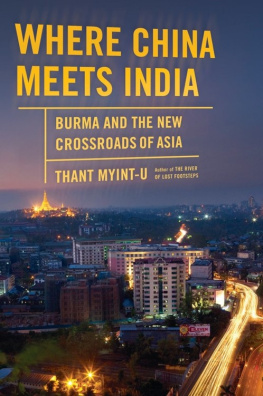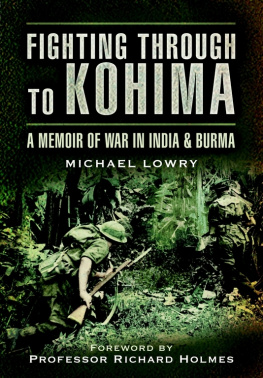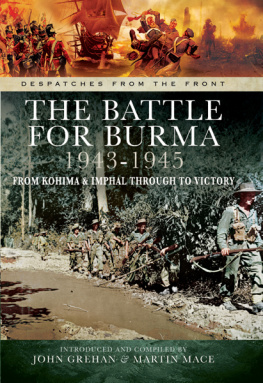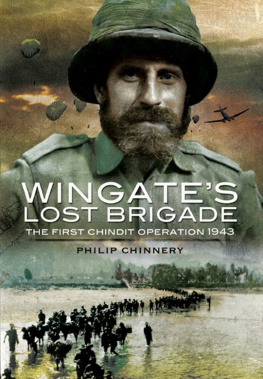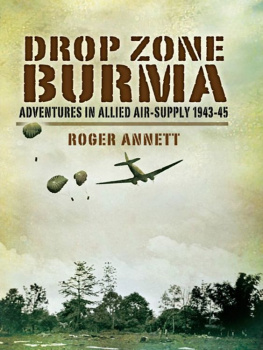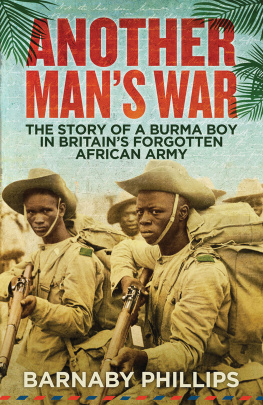
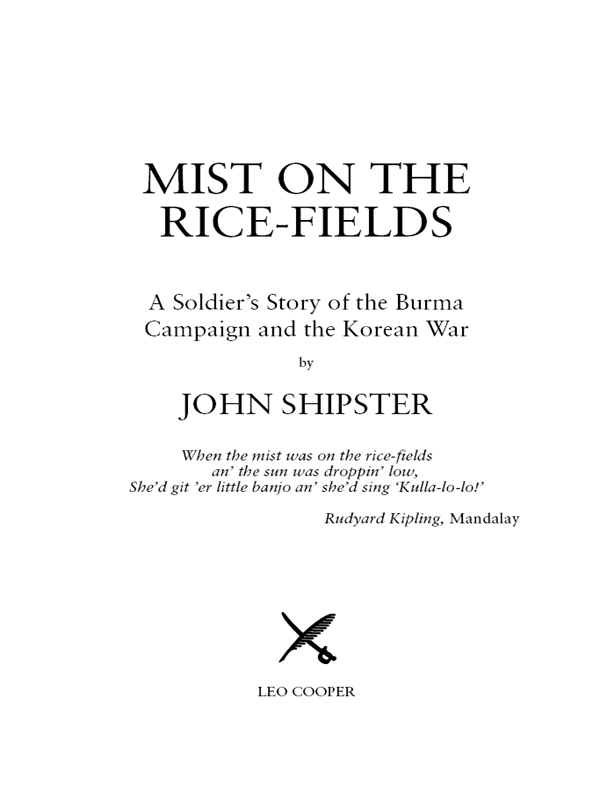
First Published in Great Britain in 2000 by
LEO COOPER
an imprint of
Pen & Sword Books
47 Church Street
Barnsley
South Yorkshire
S70 2AS
Copyright John Shipster 2000
A CIP record for this book is
available from the British Library.
ISBN 0 85052 742 2
eISBN 978 1 78337 936 1
Typeset in 11/13pt Sabon by
Phoenix Typesetting, Ilkley, West Yorkshire
Printed in England by Redwood Books Ltd,
Trowbridge, Wilts
CONTENTS
ACKNOWLEDGEMENTS
I am deeply indebted to friends and family who have been kind enough to read the manuscript and to offer comments and advice. I also thank the Imperial War Museum for their help in providing photographs. Above all I thank my wife Corry, without whose help and encouragement this book would not have been written.
John Shipster
Woodbridge, Suffolk, 1999
INTRODUCTION
by
His Honour Judge Robin Rowland QC
As a friend of the author for more than 50 years I feel honoured to have been asked to write an introduction to this book. We first met in January 1943 in the 7th Battalion of the 2nd Punjab Regiment, Indian Army, which was then billeted in the rather unprepossessing quarter of Madras City called Washermanpet. Thus began an association that was to endure throughout our service together in the Far East, and which has happily survived down to the present day.
But our real association, and deeper friendship, started when the 7th Battalion, as part of 89 Indian Infantry Brigade of the 7th Indian Division, moved to the Arakan on the borders of India and Burma in the autumn of 1943 to begin the long campaign to recover Burma. This gives me some justification for aspiring to introduce this book. The Arakan sector of operations experienced the full cycle of defeat, partial recovery, renewed disappointment, and finally decisive victory. When the battalion arrived on this front in September the author, by then a company commander at the age of 21, was immediately thrust into action against the enemy. In Arakan, as later at Kohima and Manipur State, it was war against nature: torrential rain, mist, bitterly cold early mornings, mud and blazing sun. It was also war against an implacable and ferocious enemy: the ant-like soldier, as General Sir William Slim described him. He fought most bravely and was devoted to what he conceived to be his duty. But he was a brutalized soldier. It was a savage war waged in the jungle. In times of peace the Arakan had its own strange beauty. In war it was evil: a place of treachery and terror. If men were brave in action, few witnessed it; if they had quit it would often have been unobserved. As Lieut. Colonel Frank Owen, writer and editor, has observed: All depended on the soldier and how he bore himself, and each fighter had to conquer his own heart.
In such circumstances, within the space of a few months the author was transformed from a green young officer into a battle veteran. In November, just weeks after his arrival in Arakan, he was shot and wounded by a Japanese sniper; on returning from hospital he was again severely wounded during the major Japanese Ha-Go offensive in February 1944. It was in these operations that he was awarded an Immediate DSO for outstanding gallantry and leadership a few days after his 22nd birthday.
This is not the place for an appreciation of the authors outstanding capability as a company commander in the Burmese jungle, but perhaps I might be permitted to pay a tribute to his unwavering responsibility towards himself, his soldiers, and his regiment. Gifted as he was with great powers of leadership, he was also a keen observer of people, places and events around him. In this book he has written a personal and subjective account of how the war in Burma affected him, and the reader will find not only vivid descriptions of life and, indeed, death in the jungle but also broad splashes of humour born of a sense of wit that characterizes many of the stories he has to tell. It seems to me that it was this same lively sense of the ridiculous that served to sustain him and those he commanded in battle in Burma and later in life.
Another remarkable talent of my old friend has been his ability to look forward, to forgive his former enemies for the many atrocities committed by them under the cult of Bushido. He has embraced the spirit of reconciliation with enthusiasm in a way that is a lesson to us all. Neither the power to hate nor the lust to kill were ever naturally part of his armour in his battles against the Japanese. As he himself writes: Many of us who fought in Burma do not harp on yesterdays nor can we see any future in maintaining a non-forgiving attitude.
With gratitude and affection, therefore, I wish this book success, and its author with his wife Corry every happiness for many years to come.
FOREWORD
by
Fergal Keane
We live in an age where the virtues of courage and sacrifice are too often ignored in favour of the cynical and the vulgar. Our popular culture celebrates ostentatious wealth, it exalts the trivial. What a pleasure it is then to contemplate the life of a man who represents values we might easily imagine had vanished in the all-pervasive rush of the greedy society. John Shipster is one of a quiet breed of heroes. Let me quickly add that he would immediately throw his eyes up to heaven if I were to mention the word hero in front of him; for he is the most modest of men. It is a modesty familiar to any who have spent time in conversation with the veterans of Britains two great wars of the 20th century.
Having spent some time in war zones I have some limited idea of the terror and pity of modern warfare. But, of course, nothing in my experience can match what young men from Britain experienced when they were despatched to Flanders in 1914 or to face the might of the Japanese Imperial Army in Burma in 1941. This was total warfare and, unlike the war correspondent, the soldier could not turn and walk away at the end of the day, he could not seek refuge far behind the front lines when the going got heavy. To those who have experienced war the early realization that your life may at any moment be extinguished can be petrifying. To live with that realization for hour after hour, day after day, week after week . I find it hard to contemplate the reality of such a predicament.
When I asked John Shipster about this, he answered typically, Well, one just got on with things. This is not proof of some inner coldness, nor does it suggest that the men who fought in Burma in those terrible battles around Kohima were conditioned to fight like automatons. Remember they were young men, many of them in battle for the first time. It is simply as you will discover when you read this memoir that survival depended on staying focused entirely on the task at hand. Over the years I have read many accounts of the fighting in Burma and am glad to say that John Shipsters memoir can take a proud place with the best. In the pages that follow, you will read a riveting and deeply moving account of warfare at its most brutal. The author does not shy away from the horror of close-quarter combat, but neither does he allow his prose to lapse into the indulgent or the speculative. What we get are the facts: harrowing and inspiring.
I met John Shipster through his son, my good friend Michael, a Foreign Office diplomat whom I first met in South Africa during the transition from apartheid to majority rule. Michael had told me that his father was writing an account of his service in the Burma Campaign and later in the Korean War. As a keen reader of books about the Second World War, I was delighted to read the manuscript. As a writer I was immediately impressed by John Shipsters ability to transform his experiences into clear and engaging prose. More impressive still was the restraint in the writing; in a narrative where there would have been justification for extravagant language John Shipster resists the temptation.
Next page
